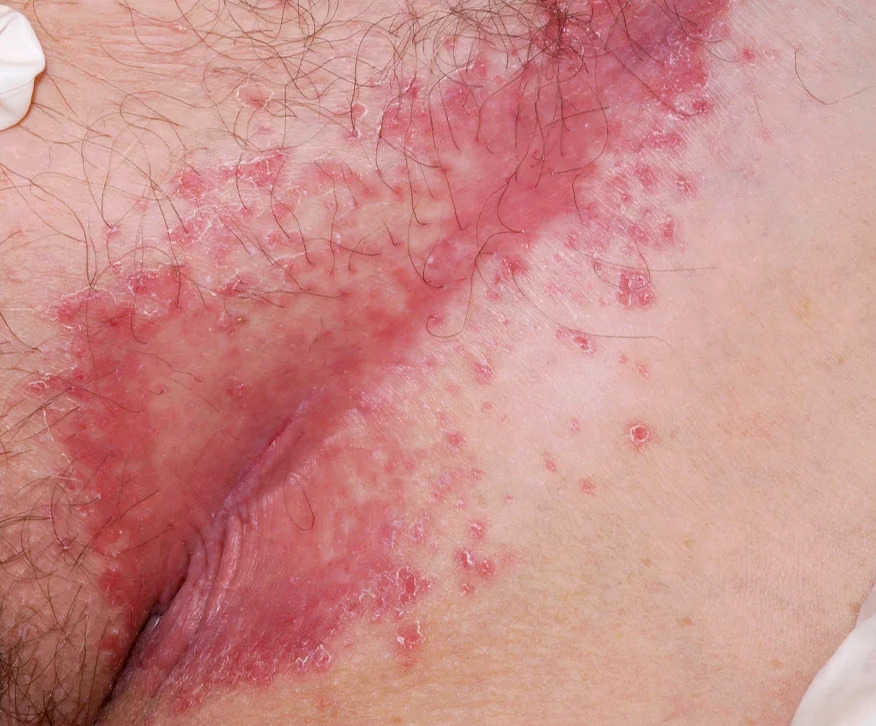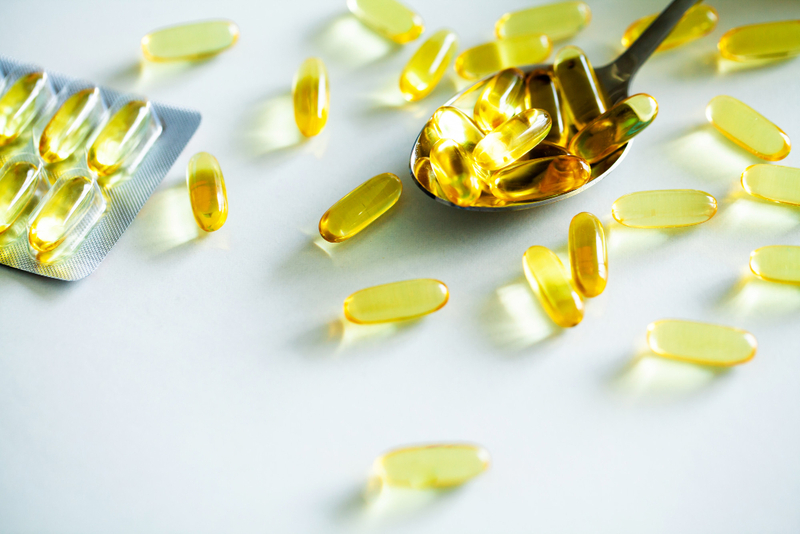Genital psoriasis can be challenging to manage, but with the right knowledge and treatment, Canadians can significantly improve their quality of life. This article delves into the causes, symptoms, and treatment options for genital psoriasis, offering practical advice to help you take control and find relief.
What is Genital Psoriasis?
Genital psoriasis is a type of psoriasis that particularly affects the genital area of the individual. On its own, psoriasis is an autoimmune disease characterized by the accelerated production of skin cells beyond the normal rate. Consequently, the excessive proliferation of skin cells leads to the formation of thick and scaly spots that are quite uncomfortable and irritated on the genital area.
Symptoms of Genital Psoriasis
Genital psoriasis may demonstrate in ways which may hinder you in your day-to-day life such as red, inflamed patches on the skin, itching, and burning, dry, cracked skin that can end up bleeding, a burning sensation during urination or sexual activity, and swelling and pain.

How Do You Get Genital Psoriasis?
Similar to psoriasis, the exact cause behind genital psoriasis remains not absolutely understood, however, there are a variety of of factors that have been identified to both trigger and exacerbate the situation:
- A genetic track of psoriasis inside the family can increase the probabilities of getting psoriasis.
- Psoriasis is an autoimmune disease. Therefore, a hyperactive immune system can target skin cells and result in genital psoriasis.
- Factors such as infections, stress, and skin injuries can trigger psoriasis flare-ups.
- Other factors like smoking, alcohol intake, and even weight problems can trigger and worsen psoriasis symptoms.
Genital Psoriasis Treatment Options
For genital psoriasis, there is currently no definitive cure, but various medical treatments can effectively manage symptoms and prevent flare-ups. In Canada, topical treatments like creams and ointments are often the first choice, while systemic medications are typically reserved for more severe cases. Treatment strategies focus on relieving symptoms such as itching and preventing future flare-ups, helping individuals maintain comfort and control over the condition.
Topical Treatments
The application and sometimes the ingredients of the treatment change from instance to instance. Some treatments should be applied directly to the affected areas:
- Corticosteroids reduce inflammation and itching. Use them with measure to avoid the thinning of the skin.
- Vitamin D Analogs: These actually affect the process of cell death, which typically happens too fast in psoriasis sufferers. These medications are therefore used to slow down the excessive production of skin cells.
- Immunomodulator inhibitors: They are more effective in areas which are irritated but are not as available for topical treatment such as genital area. They decrease the symptoms without thinning the skin.

Systemic Treatments
These kinds of treatments affect the entire body. They are frequently utilized in cases topical treatments prove to be ineffective.
- Oral Medications: For example, methotrexate or cyclosporine drugs stop the white blood cells and other immune cells from being so active.
- Biologics: They are medicines that come in the form of an injection and function on a part of the immune system.
Phototherapy
Phototherapy, or light therapy, is the procedure of getting the skin exposed to UV light under the supervision of a doctor. It is a good way to protect the sensitive genitals but should be carried out very cautiously due to the super sensitive area of the genitals.
Lifestyle Changes
It is recommended to make some simple changes that will surely have a positive effect on genital psoriasis. Genital psoriasis treatment can be supported by a healthy lifestyle.
- Maintain Good Hygiene: Keep the area clean and dry.
- Avoid Triggers: Identify and avoid factors that worsen symptoms, such as certain soaps or tight clothing.
- Healthy Diet: A balanced diet can help manage overall health and reduce flare-ups.
- Regular Exercise: Exercise can improve overall health and reduce stress, a known trigger for psoriasis.
Home Remedies
These tips can top up medical remedies. Following through with them is as simple as getting access to them and it’s quite feasible at home.
- Moisturizer: For the maintaining moisture in your skin, choose non-fragrant moisturizers.
- Warm Bath: The act of immersing yourself in a hot bath together with Epsom salt has amazing relieving qualities for genital psoriasis symptoms.
- Aloe Vera Gel: Aloe Vera is an anti-inflammatory agent thus, it helps to decrease redness and will ease your discomfort.

Can Genital Psoriasis Go Away?
A flare-up of genital psoriasis can become a chronic condition forcing the patient to live with it for a long time. Nevertheless, the application of appropriate methods or the use of correct measures will allow the patients to identify clear improvements in their general health conditions and live a psoriasis-free life.
How Long Does Genital Psoriasis Last?
The duration of genital psoriasis will differ up from patient to patient. Some have to deal with short-term flare-ups lasting a few weeks, but the other few have to face the swirl of syndromes that need ongoing management and attention.
Genital Psoriasis in Canada
The number of patients suffering from genital psoriasis in Canada is estimated to be 1 million. The accessibility to healthcare and dermatology services is crucial for the management of genital psoriasis. Being cared for by a psoriasis online dermatology service is the ultimate approach to skin health for Canadians. The possibility of online dermatology services has significantly lowered the concern of lack of access to specialist care.
Living with Genital Psoriasis
Caring for genital psoriasis involves feasible and preventive activities to ensure the health of the patient. One helpful suggestion is talking openly with the partner. Besides, the patient should also get support from support groups, keep himself informed about the disease, and have regular medical checkups. Open communication can lower the anxiety and improve the sexual interaction of a partner with psoriasis. Participating in a support group can give psychological support. Doctors and testing can help track the illness and change the treatment if necessary.
Final Thoughts
Genital psoriasis doesn’t have a cure yet, but there are effective ways to manage its symptoms and prevent flare-ups. In Canada, topical treatments like creams and ointments are usually the first option, while more severe cases might require systemic medications. Treatment focuses on relieving discomfort, like itching, and reducing the chance of future flare-ups, making it easier to live with the condition.
FAQs
1. Is it possible to get genital psoriasis if there’s no psoriasis elsewhere on the body?
Simply put, yes, it is highly likely for anyone to develop genital psoriasis even though the rest of the body is unaffected.
2. Is stress an influential factor for psoriasis on genital flare-ups?
One of the most well-known triggers for psoriasis, in other areas of the body as well as the genital area is stress.
3. Is psoriasis of the genital type communicative?
No, psoriasis of the genital variety cannot be passed on to other people and are not contagious.
4. For control of psoriasis on genital, which diet is ideal?
Aiming to reduce the symptoms, a well-balanced diet mostly consisting of anti-inflammatory foods like fruits, vegetables, and omega-3 fatty acids.
